Soft Tooling vs. Hard Tooling
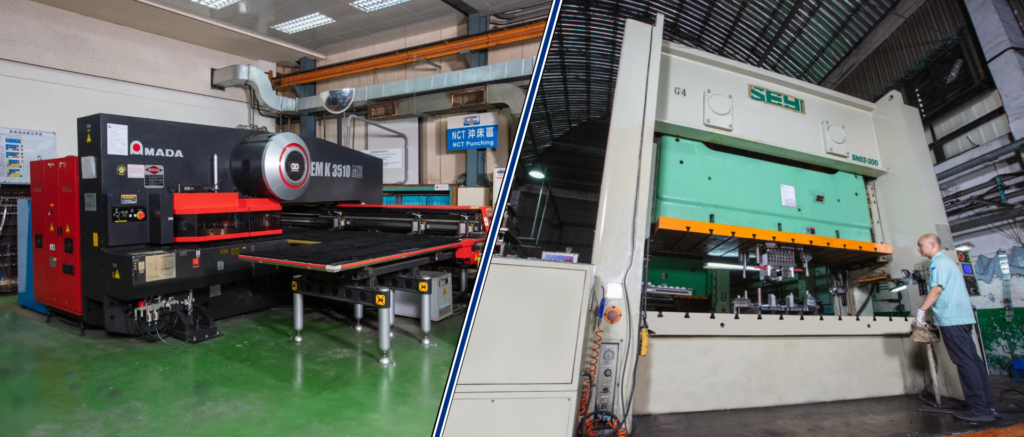
Soft tooling and hard tooling are the two main fabrication methods for sheet metal parts. There are benefits and limitations for both. In this article, we describe each process then explain some key considerations when determining the best approach.
Soft Tooling
Soft tooling involves different machines to form each type of feature. Those in the sheet metal industry often refer to soft tool production as “NCT” (Numerically Controlled Turret), the machine used to punch/pierce the metal. Other frequently used equipment are the laser cutting machine which cuts the metal and a press brake for bending purposes. Soft Tooling is labor intensive because not only are different types of machines involved, but multiple steps and adjustments on each machine may be required to form the final product.
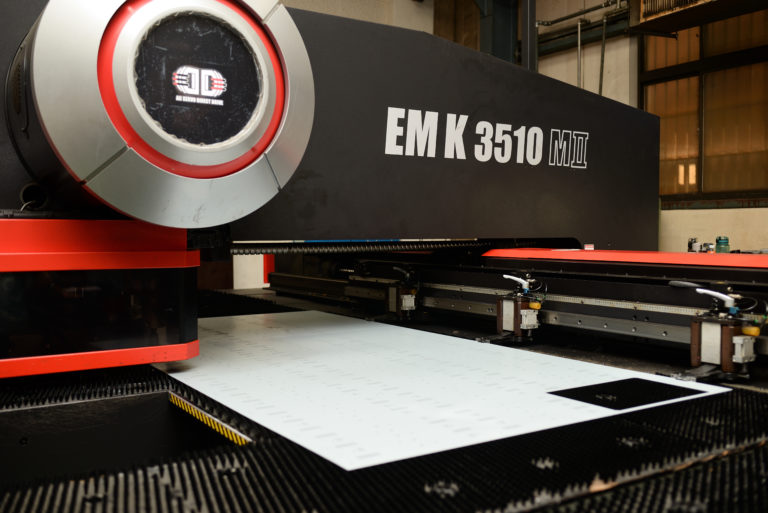
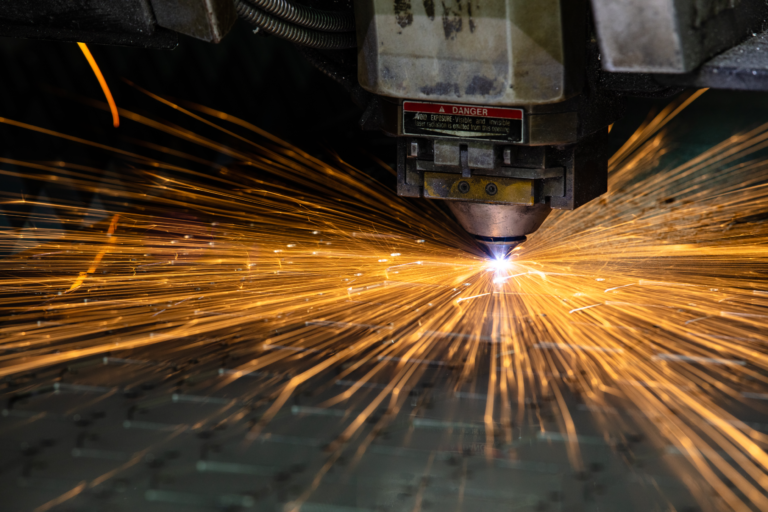
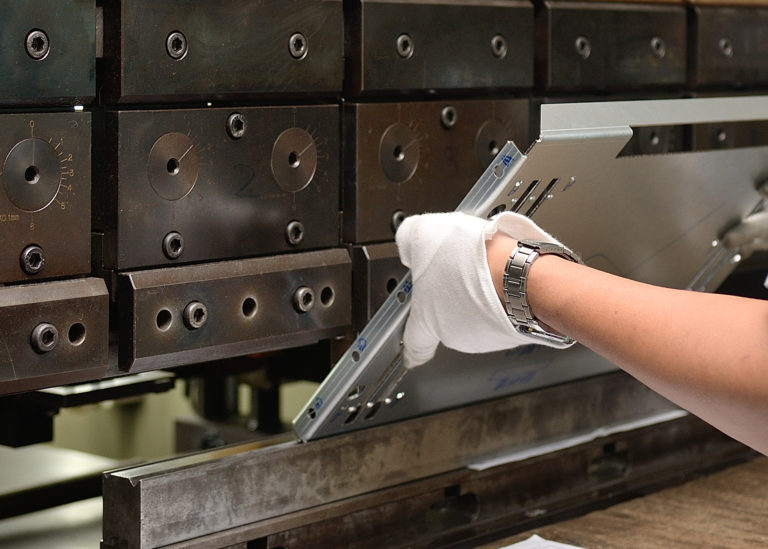
Hard Tooling
Hard tooling gets its name because parts are built using hardened steel dies known as “tools.” These custom tools are set up in heavy tonnage stamping presses. Unlike soft tooling, multiple features (e.g. piercings, cuts, and bends) can be formed at once in a stamping press. Some designs can even be built by progressive die, meaning multiple stages are set up in a single machine. However, complex parts like server chassis usually need to run through a series of stamping press stages to achieve all the necessary features. In general, hard tooling requires less labor because the presses are set up in a row, which makes the stamping easily automated.
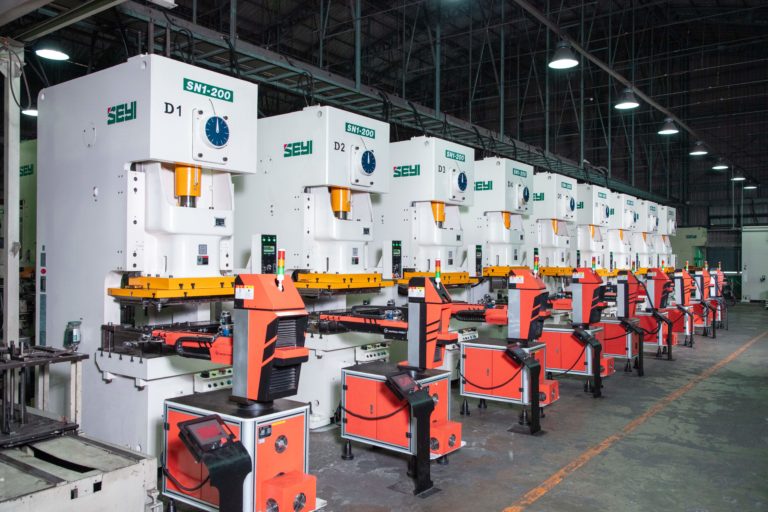
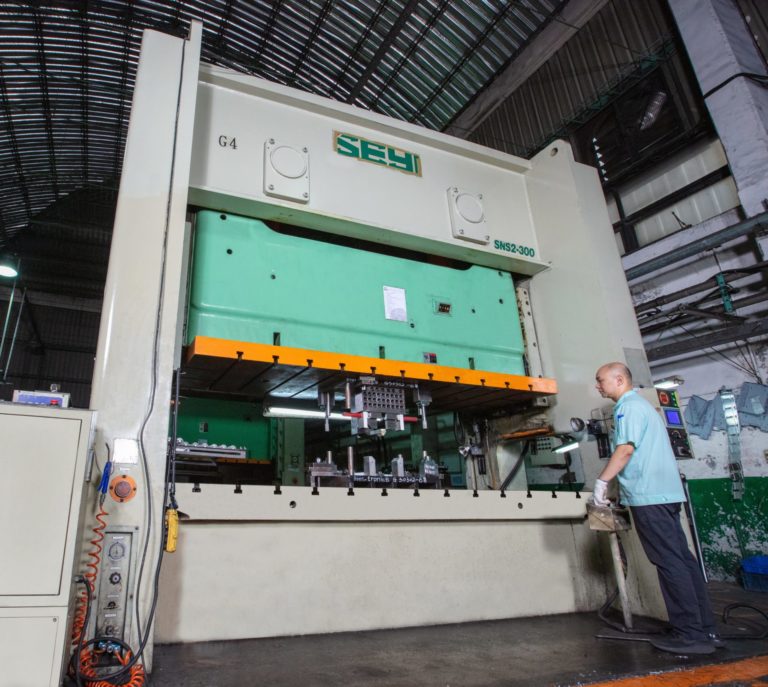
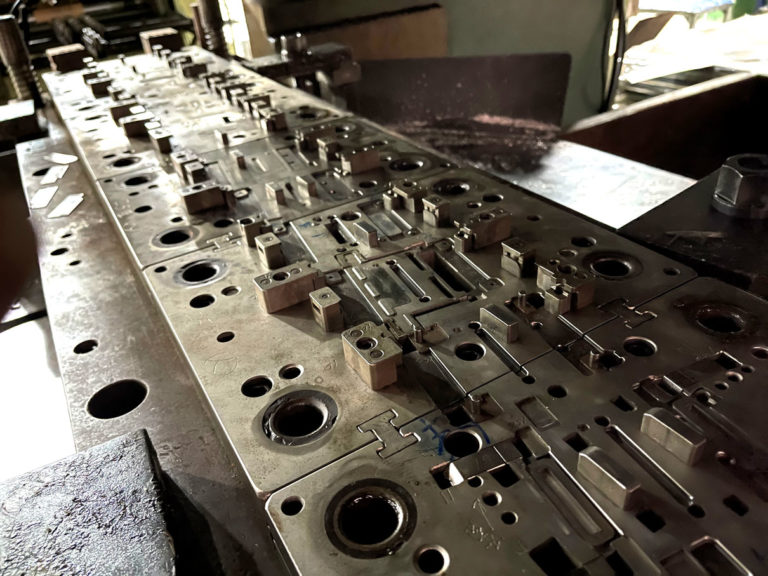
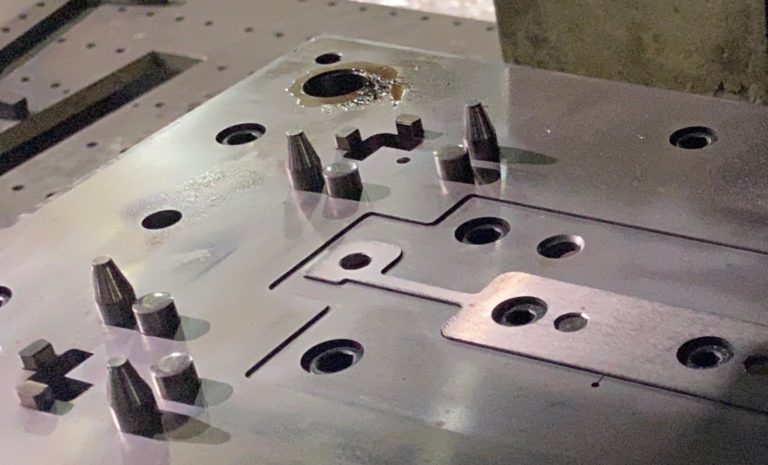
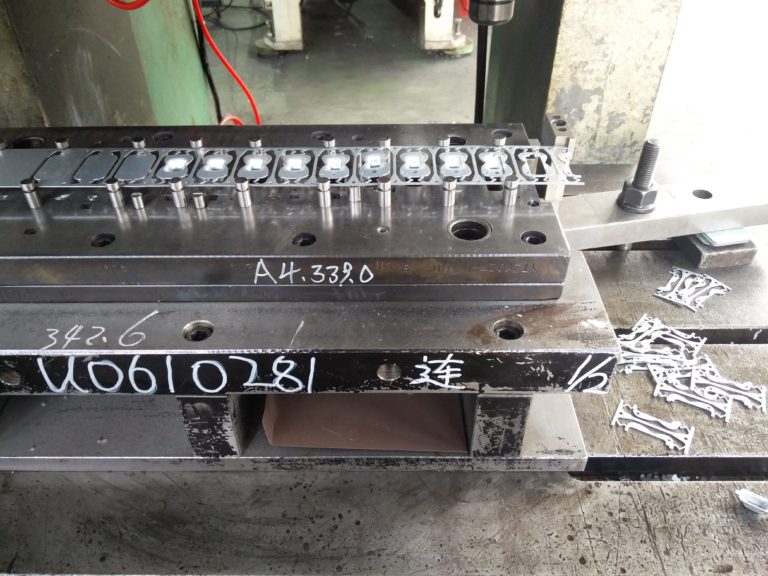
Key Considerations
The primary consideration for customers when it comes to soft tool vs. hard tool fabrication is the cost impact, which is closely tied to the overall demand volume. Soft tooling has a higher cost per piece because it is a labor-intensive process. However, the total cost may make sense if you are building prototypes or other low-volume parts, especially since little to no upfront investment is required to get a customized final product. As volumes increase, however, soft tooling becomes more expensive. Parts with high volumes are best built by hard tooling because the process may be automated so suppliers can offer a lower cost per piece. Though customers need to invest in customized tools, a typical return on investment in the sheet metal industry is only about 6 months.
Another factor is the standard production lead time. Soft tooling is far quicker when building low volumes because different machines are run at different times. Therefore, production can start without waiting for all machines to be available to use. The set-up time to program those machines is relatively short as well. On the other hand, hard tooling requires a series of stamping presses to be available to use at the same time, so scheduling is more critical. Then, custom tools need to be set up on each stamping press. Once tools are up, however, the actual production run is quick and can efficiently stamp out high volumes.
Production flexibility is also important to some customers. Soft tooling is the standard process for building prototypes, not only due to the low volume but also because the parts are still in development. That means changes may still be made before a design is finalized. Soft tooling is a more flexible fabrication process as custom features are formed by simply programming them into various machines before the build. This means changes can be made any time before production begins without extra expense. Whereas customizations in hard tooling are achieved through investments in custom made tools. Design changes that impact those physical tools would require tooling modifications and lead to additional costs, so hard tooling is best for building parts with firm designs.
The final major difference between the two fabrication approaches is precision due to the fundamental nature of how the parts are built. Since soft tooling involves different types of machines and different operators, there can be more opportunities for inconsistencies. Therefore, it is important to work with an experienced supplier with a well-established quality control process in place. In contrast, hard tooling easily achieves tight, repeatable tolerances as the stamping process is more automated and runs relatively seamlessly from one press to the next.
Conclusion
Whether to build by soft tool or hard tool is usually straightforward based on the overall cost, anticipated volume, and whether the part is still in development. There are times, however, when it is less clear cut. As experts in the sheet metal industry, we at the Cheng Fwa Group would be able to help find the best approach. Since we are capable of both types of production, we can offer cost-effective hybrid solutions for any demands that fall in between low and high-volume. We can also manage a seamless transition from prototyping to mass production, saving you further coordination.
In general, sheet metal prototypes built by soft tool are produced within 48 hours to 4 weeks to ensure a competitive time to market for our clients. And our standard lead time for hard tooled parts is between 2 to 8 weeks. Cheng Fwa Group is an ISO certified supplier building quality sheet metal parts for Tier 1 customers for over 60 years. We have the experience and are well-equipped to support your needs. If you choose to work with us, we will make sure we understand your expectations and priorities to ensure your success.
Contact us today for a consultation!
Table Summary
| Differences | Soft Tooling (ST) | Hard Tooling (HT) | |
|---|---|---|---|
| 1 | Processing Method | Multiple types of machines required to form each feature Labor intensive | Multiple features achieved with one type of machine Easily automated |
| 2 | Optimal Volume | Prototypes Low-volume production | High-volume production |
| 3 | Associated Costs | Higher cost/piece Little to no upfront investment | Lower cost/piece Upfront investment for custom tooling required |
| 4 | Standard Lead Time | Short production lead time (2 days-4 weeks) | Long production lead time (2-8 weeks) |
| 5 | Flexibility | Flexible design changes | Firm design, no further changes |
| 6 | Precision | More opportunities for dimensional variance | Repeatable, tight tolerances |

ADD: 282 Central Street Unit 6
Hudson, Massachusetts
United States, 01749
TEL: 978.293.3542
FAX: 978.293.3543
EMAIL: Info@TeamMax.com
Capabilities
- Precision Metal Stamping / Fabrication
- Rapid Prototype / Soft Tool Production
- Tooling Development / Maintenance
- Plastic Injection
- Finishing Processes
